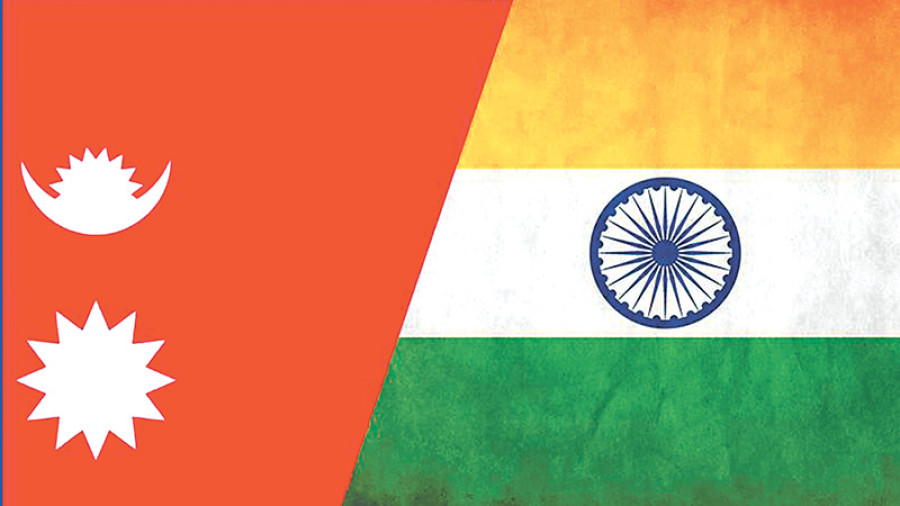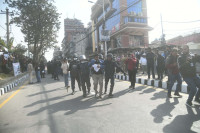Opinion
Work in progress
Softening its position on demands of Madhes-based parties, India now seems to support the constitution implementation process
Kamal Dev Bhattarai
Following the successful completion of local level elections, preparations for federal and provincial parliamentary elections are in full swing. Parties are busy picking candidates and the Election Commission has already started printing ballot papers. The country also recently celebrated the second anniversary of the promulgation of the constitution on September 20.
Finally on-board
Nepal finally has elected representatives for local bodies after two decades, marking an important milestone in the journey of constitution implementation. Discontent regarding the constitution has settled down to a huge extent. Even the Madhes-based parties who spent more than two years protesting the constitution joined local level elections and are preparing to contest in upcoming polls. This clearly indicates that the Madhes-based parties have accepted this constitution despite some reservations.
The current advances made in the constitution implementation process came after many ups and downs over the past two years. Parties had to overcome several internal and external challenges to protect the newly promulgated constitution. The promulgation of the constitution has been followed by wide-spread discontent in the southern belt, with Madhes-based parties launching an indefinite strike against the constitution that they dubbed ‘divisive’. There were also fears in political circles that divisions between the hills and the Madhes could escalate, posing a threat to national unity.
In the last two years, violent clashes between cadres of Madhes-based parties and police in the southern districts claimed the lives of more than 60 people. India imposed a border blockade which brought Kathmandu to a complete standstill, severely affecting the supply system of essential commodities for about three months.
Agitating Madhes-based parties—apart from a few exceptions—came under a single umbrella a few months ago, forming a new party called the Rastriya Janata Party-Nepal (RJP-N). The RJP-N boycotted the first and second phases of election, claiming that their demands had not been fulfilled. On August 21, Parliament rejected the second constitution amendment bill after it failed to secure two-third votes. This rejection put moral and political pressure on the Madhes-based parties to accept Parliament’s decision and stand for elections despite the fact that their demands were not met.
Changing opinions
India has emerged as a prominent factor in Nepal’s constitution promulgation and implementation process. In the initial months following the promulgation of the constitution, India publicly pressed for amendments. Just three days before the constitution promulgation, India dispatched its foreign Secretary S Jaishankar to Nepal in a bid to delay the promulgation of constitution. In the meeting with political leaders, Jaishankar urged them to stop the process of constitution promulgation and to start negotiation with Madhes-based parties to accommodate their demands. Following Indian pressure, political leaders were sharply divided about the promulgation of constitution. The then President Ram Baran Yadav pressed key political leaders involved in drafting the constitution to halt the process. However, Nepali political leaders withstood this pressure from India and promulgated the new constitution.
All governments led by either KP Oli, Pushpa Kamal Dahal and Sher Bahadur Deuba have had to face immense pressure from India in regards to amendments. In 2015, India clearly conveyed to the Oli-led government that the blockade would not be removed until amendments were made to the constitution and the Madhes-based parties came on board. Oli claimed that he would not embark on his official visit to India until the blockade was officially called off.
All governments following Oli’s have faced internal criticism for allowing Indian interference in internal political matters. Both Dahal and Deuba expressed their readiness to amend the constitution with Indian leaders during their visits to India.
Now, it seems that India has softened its position concerning the demands of Madhes-based parties. India has publicly said that its position on an inclusive constitution in Nepal remains unchanged, but there are sufficient indications that India will now support the constitution implementation process in Nepal.
As a sign of its positive stance towards the constitution, Indian Prime Minister Narendra Modi sent a message to the Nepali people on constitution day. Similarly, India’s State Minister for External Affairs VK Singh attended a special function organised by the Nepal Embassy in New Delhi on September 22. During Prime Minister Sher Bahadur Deuba’s visit to India in August, Modi congratulated Deuba for successfully conducting the local level elections. Similarly, India also encouraged Madhes-based parties to go for local level elections.
Amid several internal and external challenges, the constitution implementation process is heading in a positive direction. The only challenge now is to hold federal and provincial elections. After the completion of these elections, the country will embark on a journey towards economic development.
Bhattarai is a political reporter at The Kathmandu Post




 7.12°C Kathmandu
7.12°C Kathmandu










